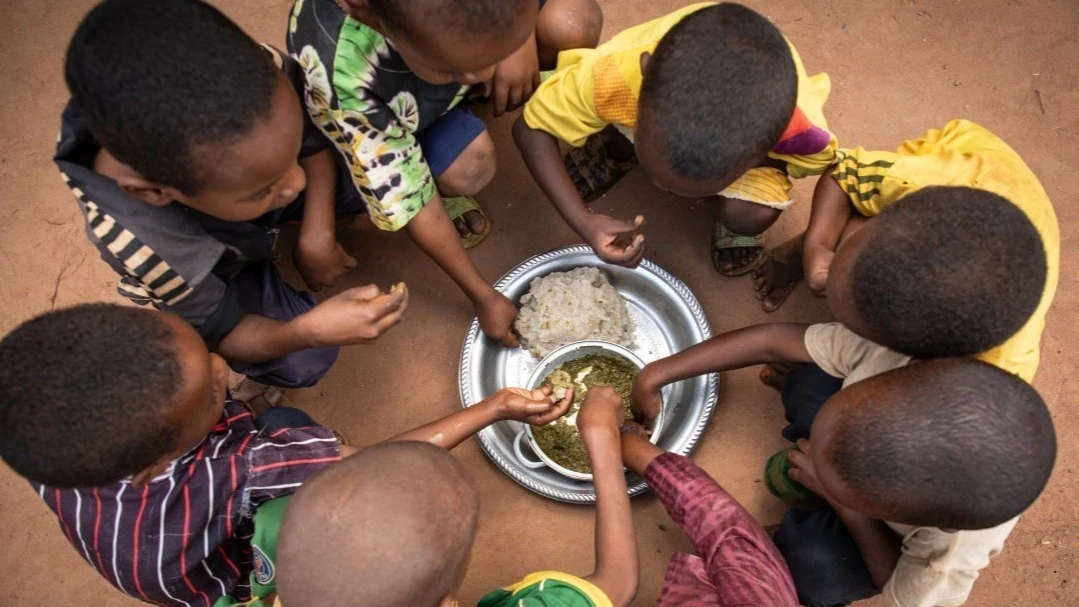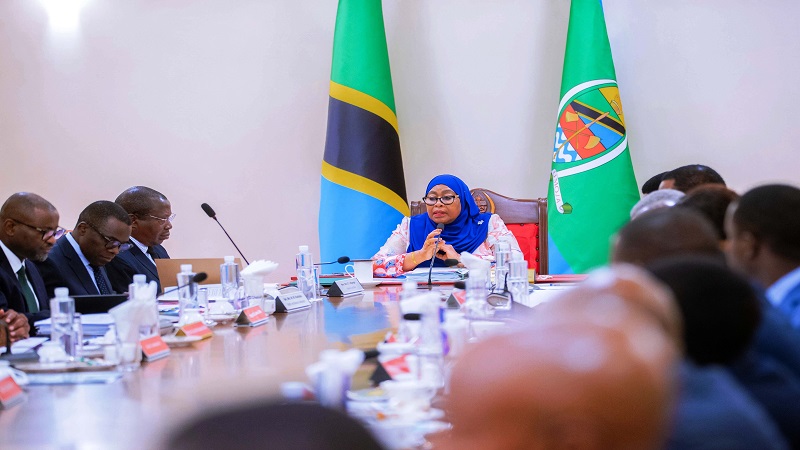FAO’s banana virus clinic colours World Food Day

EFFECTIVE communication in managing plant diseases between farmers, decision-makers and the public has been highly encouraged in efforts to engage in awareness campaigns and promptly report any suspected cases of banana plus virus.
Diomedes Kalisa, project coordinator for the Plant Health and Biosecurity Initiative (PHBI) with the country office of the United Nations Food and Agriculture Organisation (FAO), made this observation in an event to mark World Food Day in the lakeside town of Bukoba at the weekend.
The initiative is part of the ‘strengthening plant health for enhanced food safety in Tanzania’ (STREPHIT), intended to raise awareness and enhance the capacity of field extension agents, farmers, exporters and the wider public to guard against the potential threat of BBTV, even though Kagera is currently the virus-free zone.
The FAO project manager organised a special clinic in Kagera Region to heighten the prevention and management of the banana bunchy top virus (BBTV), where the global commemoration and the clinic were part of the overall theme, “right to food for a better life and a better future,” aligned with efforts to secure food security and bolster agricultural resilience
The coordinator said that FAO’s efforts during World Food Day highlighted the importance of education and engagement in plant health to safeguard future food security.
“The STREPHIT project aligns with this year's theme by contributing to the broader mission of ensuring the right to food,” he said, stressing the need for food diversity to promote better nutrition.
“Food is a basic human right, like air and water,” he declared, highlighting that during this year’s global event, emphasis was placed on the right to food “not just in the singular but in the plural,” that is, as foods.
He said diversity is key to proper nutrition thus the clinic would play a crucial role in securing local food supply chains, by implementing proactive measures to prevent the spread of BBTV.
The FAO and its partners are working to assist Tanzanian farmers in safeguarding their livelihoods, also contributing to national food security and improved nutrition, he said, noting that bananas are a staple food in Tanzania, making the protection of the vital crop essential for food security and economic stability.
“FAO experts provided training on recognising the early signs of BBTV, a virus that has caused significant damage in other banana-growing regions of Africa. Early detection is crucial to stopping the virus before it spreads,” he explained.
Extension agents were trained on establishing quarantine zones to prevent the virus from entering and spreading in Kagera, which is critical to maintaining the region’s BBTV-free status, he stated.
Timely communication is essential for coordinating responses and preventing potential outbreaks, he said, while Said Mwabesa, an Agriculture ministry official, lauded the effort to organise the clinic, urging farmers to utilise instructions gained for their development.
The knowledge gained from the clinic is vital as Tanzania remains vigilant in addressing emerging agricultural threats, he said, underlining the need for further capacity building and community engagement.
Tanzania is making significant strides toward a healthier and more secure future, he said, underlining the government’s focus as to ensure preventive measures are in place so farmers can respond quickly if the disease appears.
“Collaboration with FAO in organising this clinic was vital for the safety of our farmers and their crops,” he said, noting that the clinic highlighted the need for an integrated approach to managing BBTV.
Farmers at the clinic expressed their gratitude for the training and knowledge gained, here Adelina Kishaju, a banana farmer in the surrounding Bukoba District said what she learnt would help in identifying BBTV symptoms early and take the necessary steps to protect the crop.
Those attending have taken note of strict quarantine protocols, the destruction of infected plants, routine surveillance, the use of clean planting materials and pesticide risk management, she said.
Observers noted that a severe outbreak of BBTV, responsible for the bunchy top disease of bananas, was reported in the western regions in 2021, spreading through infected planting material and by the aphid Pentalonia nigronervosa, a virus that is widespread in banana production areas.
Delimiting surveys were conducted between May and July 2023, covering 85 districts in 15 regions, which represent the major banana production areas in the country, where the virus was detected in 22 districts in 10 regions.
Bananas in Dar es Salaam, Dodoma, Morogoro, Mbaye, Katavi, Geita, Kigoma, Kilimanjaro, Mwanza, and Coast regions were identified to have pockets of the virus, reports indicated.
Top Headlines
© 2024 IPPMEDIA.COM. ALL RIGHTS RESERVED






















